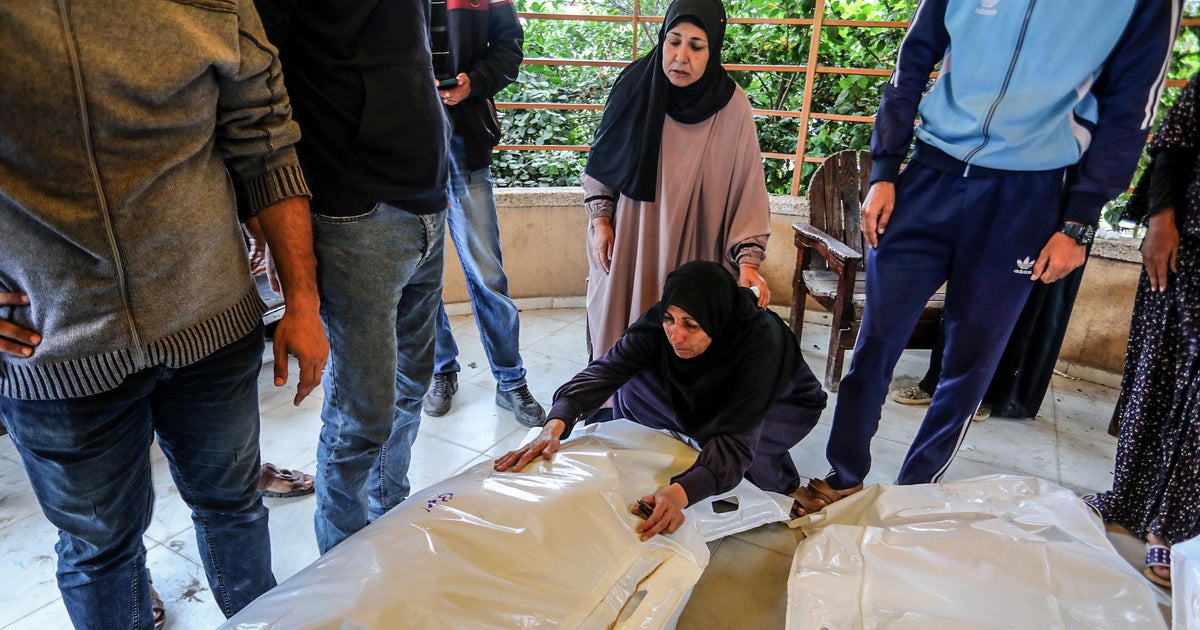Israel targets Hamas' 300-mile tunnel network under Gaza as next phase in war begins
The next phase of Israel's offensive in the Gaza Strip has begun, with Israel starting to move troops and armored vehicles over the border into the Palestinian territory.
But much of the war between Israel and Hamas, which governs Gaza, may be fought not on the territory's streets, but instead underneath them — where Hamas is believed to have built an elaborate network of tunnels, and where the militant group is also hiding hostages.
Israel says it's hitting hundreds of underground targets as it aims to eliminate Hamas in the labyrinth of passages, shafts and rooms believed to stretch more than 300 miles and possibly to a depth of more than 200 feet. Nicknamed the "Gaza Metro," Israel claims the underground maze is where Hamas plans and carries out attacks.
"They're pivotal for anything that Hamas has planned to do," said Joel Roskin, an expert on Gaza's tunnels who has studied their evolution over half a century.
Dug by hand and basic tools, early narrow tunnels were used to smuggle goods in from bordering Egypt. Later, they were used for weapons. Now, the tunnels are modernized for attacking — with electricity, phone lines and even reinforced with concrete — and are virtually undetectable.
"The geology of the Gaza Strip is ideal for tunnel digging and maintaining, but it's very complex for tunnel detection based on the abundant layers of sediment," said Roskin, a geomorphology professor at Bar-Ilan University in Israel.
Israel's army says destroying Hamas means destroying the tunnel network, which includes attack shafts near the Israel-Gaza border, defense shafts further back, artillery pads below the surface, and tunnels linked to apartment blocks and hospitals for escape.
Israel's chief military spokesman, Daniel Hagari, said Hamas operates inside and under Shifa hospital — Gaza's largest hospital — and other hospitals in the territory.
Hamas, though, denies there are tunnels under the Shifa hospital, which says it is sheltering 40,000 displaced Palestinians, and treating the wounded and the helpless, amid Israel's intensifying ground operations.
Amir Ulo, an Israeli reserve colonel, first went into a Gaza tunnel in 2007. Since then, Israel's military has been training in its own mock tunnels built by the U.S. Army Corps of Engineers.
Over the past three days, Israel has been dropping bombs to cave in Hamas' networks, even as foreign hostages are being hidden inside them.
"I'm not telling you that we are not going to face losses," Ulo said. "We are not seeking for war. We are seeking for peace. But when it's time to war, we know how to fight. And we will do it. And we will prevail."
Israeli Prime Minister Benjamin Netanyahu has framed the conflict as a battle for Israel's survival. But the families of hostages are afraid their loved ones won't come out of it alive.





